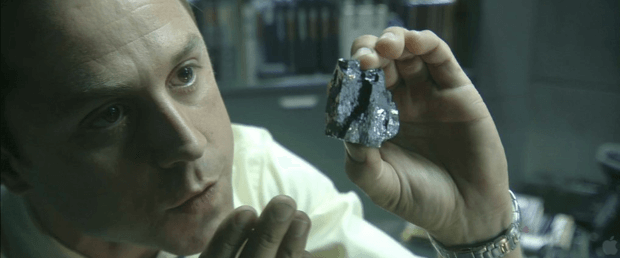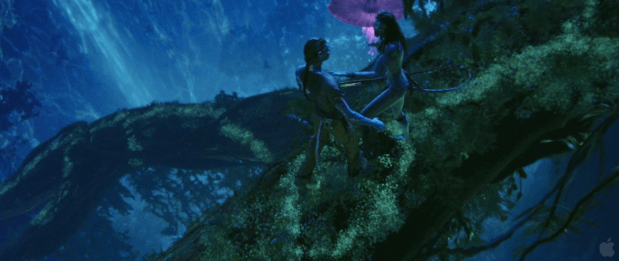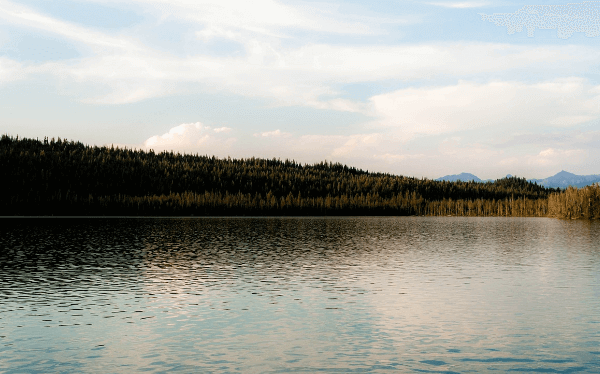Spoiler alert! This post will be full of spoilers for James Cameron’s Avatar films.
I have heard many different opinions about the Avatar films. Some people hate them, and others love them. Personally, I fall in the latter category.
That is not to say that the films are perfect, but I think that they bring an important message in a beautiful way. They illustrate the value of living in harmony with nature as well as forewarning about a potential future in which we might be estranged from it.
When I first watched the first film, I had not yet studied psychology, but I remember it having an immense impact on my world view. I experienced some clear tendencies towards ‘Avatar Depression’. Trust me, it was a thing! You can look it up.
Avatar depression was characterised by a sense of sadness about not being able to live on Pandora, the planet on which the Avatar plot takes place. For me, the solution to this was to realise that our own planet is Pandora, we just need to reframe how we think about it a bit. Because of my great appreciation for these films, it is about time I share some of the lessons I have taken from them, which I will do here.
Materialism And Wellbeing
Early in the first film we are introduced to the core value of the human settlement, material wealth, which they gain from a material called ‘unobtanium’. As the name suggests, this is a material that is hard to come by and so valuable to the humans that it is the main reason for them being on Pandora.
The name of this material also speaks indirectly towards how the humans always seem to feel discontent (un), in their continuous struggle to ‘obtain’ material, (ium). Psychologically this is a familiar problem in our current western materialist society, where we all must struggle to obtain materials that we need or think we need.
This struggle can lead to a feeling of always missing something, not being good enough, life being a struggle or being in a never-ending race, which are not helpful for our wellbeing. The unattainable carrot keeps us striving.

Gratitude And Appreciation Of What We Have
For context, the main protagonist in the films, Jake Sully, is bound to a wheelchair when he is in his human body. However, Jake gets access an ‘Avatar’, a new body whose DNA is a mix of his and that of the native humanoids on Pandora, who call themselves the Na’vi. Jake’s Na’vi body has functioning legs which allows Jake to walk again for the first time in many years.
There is a moving scene where Jake runs barefooted and smiling through the outdoor gardens of the settlement, taking in the experience as if he has desired nothing else for years. This is a brilliant pointer to the fact that we often take for granted what we already have, and that sometimes we don’t realise something’s value until we lose it.
This scene is one of the first hints in the film towards the value of mindful experience. It shows how Jake pays close attention to and appreciates his immediate sensory experiences, such as the tactile sensations of his bare feet on the ground, the fresh air he breathes in, the sight of the nature around him, and the taste of a fruit his colleague eventually throws at him. A wonderful artistic demonstration of how we can find joy and gratitude in our immediate sensory experiences.
‘You are like a baby’
If you have watched the first film, you know which scene I’m bringing up here. This is in my opinion one of the most important movie scenes of our time. And although I won’t be able to give it justice, I’ll break some of it down as I interpret it.
In this scene, Jake meets one of the natives, called Neytiri, for the first time after she has saved him from some jacal-like creatures. After he tries to thank her, she tells him not to and explains to him that it is his fault that the jacals died and that their death is sad.
When Jake protests that it was the jackals who attacked him, Neytiri tells him that it is his fault because he is like a baby who makes noise and does not know what to do. And bear in mind that she says this to Jake who is a soldier, trained in survival and combat.
In the modern industrialised world, people have become more and more specialised parts of larger and larger groups. We trade our increasingly specialised skills for everything else we need. In the past when we lived in smaller groups, everyone had to adopt more diverse skills for the group to function.
The disadvantage of the former is that individuals are increasingly dependent on the group as well as the group’s need for their specialised function. Therefore, if we go outside of the social system we depend on, we are indeed like helpless babies who don’t know what to do. We have traded our independence for specialised skills.
Why does this matter? There are rising levels of anxiety in our population. Anxiety can be thought of as a feeling of being unable to handle something that will happen.
For example, you are anxious about spiders. This means you feel that spiders are dangerous, and that you are unable handle the threat they pose.
If you are just generally anxious that something bad will happen, you probably feel something will happen that you are inadequate to handle, whatever it might be. Therefore, the opposite of anxiety can be seen as confidence in one’s ability to handle the world.
It is possible that one reason for increase in anxiety is that the parts of the world that we can handle are increasingly narrow. Developing diverse knowledge and skills can be a way to reduce the restraining impact of anxiety as they promote confidence and independence. This is the path Neytiri soon takes Jake on, and what a wonderful character development is about to take place!

Richness Of Experience
After Jake is introduced to the Na’vi he enters an apprenticeship with Neytiri as his teacher. During this time Jake spends the days in his Na’vi body, training and learning the Na’vi ways while reporting back to his colleagues and resting in his human body.
During this time, there is a gradual change in Jake, where he grows increasingly eager to spend time in his avatar body. He reports to his video log that he now feels like the time with the Na’vi feels like the real world, whereas his human life starts feeling like it’s merely a dream. What happens here?
When I have watched this film more recently in my life, this part always made me think about Fredrich Nietszche’s ‘eternal recurrence’ thought experiment. In this thought experiment you are asked to imagine having to live your life over and over again exactly as you have, are, and will be living it, for eternity.
Would you want to? When I see Jake living in the Na’vi world I can imagine he would have. When I see the humans in the settlement, I can imagine they wouldn’t. What makes me think this?
There is one key factor I can think of, which is the richness of experience. The humans seem to be in a constant unobtanium state, full of longing for something that they can never have enough of.
They live in stale, artificial conditions where you’d never turn your head to get a closer look at a feature in the room out of curiosity, and the food they eat comes in containers. They do, however, have comfort, safety, and ease of living.
Jake in the Na’vi world, on the other hand, lives in a state of constant wonder, challenge, and learning. He is training his body to move through a three-dimensional diverse jungle, he goes hunting, learns a new language, is introduced to a new spiritual tradition, swims in the rivers, eats wild game that he has harvested himself, learns to fly, falls in love, and nearly gets eaten at one point. Not comfortable, not safe, not easy, but rich. ‘Let’s do this forever’, I hear Jake say.
Turning Earth Into Pandora
Mindfulness is an increasingly appreciated skill in scientific and spiritual circles alike. What it basically helps us do is to stay present with our experience and paying attention to the here and now.
The good thing in this context is that we don’t have to be on pandora to enjoy mindfulness. A simple practice of setting aside ten minutes a day to practice mindfulness can have significant impact on a person’s experience.
Appreciation and gratitude for one’s experience can be a tricky topic to navigate. I already hear some of you protest ‘well, I live in a boring town, not in the forests of pandora. Why would I appreciate this?’
To some extent, this is a good point as our circumstances will vary in favourability. However, what I have come to learn is that we often have more control over our experience of appreciation and gratitude than we think.
Try for example to start the day by writing down five things you feel grateful for. If these are hard to come up with, think of what it would feel like to lose something that is important to you.
Notice how this enables you to feel gratitude through ‘doing’ rather than ‘having’. If you try this, you may notice that it puts you in a state of mind that lets you access more gratitude during the day.
Try also to go out in the world and appreciate things you find beautiful. Nature is a good option if you have it available. If you say that nothing is beautiful in the world, then you are looking in the wrong direction.
Place your attention on the beauty in the world and appreciate it. If you are interested in further exploring this, check out this book: Reconnection: Fixing our Broken Relationship with Nature – Miles Richardson – Google Books.
Diversifying Skills
Particularly as we get older, it is important to make an effort to continue learning. As discussed above, learning new skills can be a good way of boosting one’s confidence.
As we get older, we tend to lean more and more on already established skills while focusing our attention in more and more specialised areas. This can leave us increasingly functioning on ‘autopilot’ during much of the time, which gives us more thinking space for other things than what we are currently doing.
However, as discussed above, this extra space for thinking as well as the continuous demands in our specialised area of expertise can leave us helpless when something unexpected comes up in the present moment. Imagine for example that your car breaks down while you are stressing about a work project that you need to get on with.
Now, you can’t be skilled in everything in the modern world. However, continuously learning new skills and overcoming new challenges can provide healthy confidence boosts. To start this, have a think about things you would be interested in learning. Then set yourself some challenges to overcome.
Perhaps you’d like to master a new language, learn to paint, or become handier with electronics or mechanics. Or perhaps something more avatar inspired? There are opportunities out there to learn the necessary skills to become a hunter or forager.
Although we do not have Ikrans, one can get close the experience they provide by learning how to fly the various forms of gliders, which is surprisingly quick to get started in. We may struggle to go diving dive half naked in the cold ocean with our eyes open, but with some simple gear we can learn to free dive in the ocean and explore the incredible underwater world.

The Bottom Line
We all get bored sometimes and this is healthy. However, we often drown our boredom in social media, TV-series, newspapers, and video games.
This may give us initial dopamine boosts which helps us not feel bored for a while, but it does not provide rich experiences. Time spent with media can therefore leave us feeling like our lives are empty and like we are busier than we are because these things take up time.
Try instead to swap a two hour stretch of TV-series for a walk somewhere you haven’t explored yet, make dinner outside on a fire, do a yoga session in nature, take family or friends to lay on the ground and look at the stars, or anything else that provides a richer experience than the TV-show. If people look at you like you are weird, then take this as a sign that you are doing something worthwhile.
You can turn this into a game by challenging yourself to find a new experience every week or some other interval of time.



